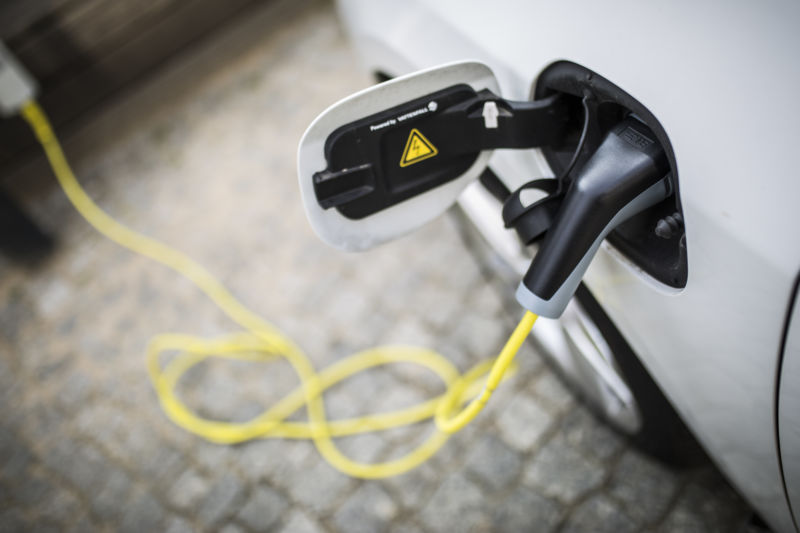To replace gas taxes, Oregon and Utah ask EVs to pay for road use

Enlarge (credit: Florian Gaertner/Photothek via Getty Images)
The end of 2019 saw a bunch of headlines proclaiming that it was a huge year for the electric vehicle. Yet more declare that actually, 2020 will be the year the EV really takes off. It's true there are now more EVs; plug-in hybrid ones, battery ones, and even hydrogen fuel cell EVs in a range of shapes, sizes, and prices, and five of them made it into my list of the 10 best things I drove last year. When the numbers for 2019's plug-in EV sales are complete, we expect more EVs to have been sold in 2019 than any year before, even if total new car sales in the US have dropped.
Still, let's not get ahead of ourselves; EVs might be outselling manual transmissions by nearly 2:1, but they still account for little more than a rounding error in the context of ~17 million new car and truck sales. If that has you depressed, take heart that the trend for EV sales is moving in the right direction. And it's a trend that is starting to worry some of the states. That's because the US has traditionally paid for the upkeep of its roads via direct taxation of gasoline and diesel fuel, which means that as our fleet becomes more fuel-efficient, that revenue will drop in relation to the total number of vehicle miles traveled each year.
Utah tries something newAs a result, some states are starting to grapple with the problem of how to get drivers to pay for the roads they use in cars that use less or even no gas per mile. At the start of this year, Utah has begun a pilot Road Usage Charge program, coupled to an increase in registration fees for alternative fuel vehicles. Assuming a state gas tax of 30c/gallon and 15,542 miles/year driven, Utah says it collects $777 a year from a 6mpg heavy truck, $311 from a pickup getting 15mpg, $187 from a 25mpg sedan, $93 from a 50mpg hybrid, and nothing from anyone driving a battery EV.
Read 6 remaining paragraphs | Comments